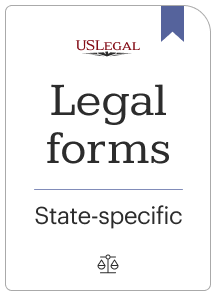

This AHI form is used once someone is hired as a work for hire employee. The form lists the guidelines for a work for hire employee. A Work for Hire Agreement music template is a legal document that governs the relationship between a music composer or producer and a client, establishing the ownership and rights of the created musical work. This agreement is crucial in the music industry, particularly for commissioned projects, collaborations, or when the composer's creative input is involved. The template typically includes the following key elements: 1. Title and Parties: Clearly stating the title of the agreement and identifying the parties involved, such as the composer/producer and the client (individual or company). 2. Scope of Work: Defining the specific tasks or services to be provided by the composer/producer, such as composing and producing original music, arranging existing compositions, or providing instrumental tracks. 3. Compensation and Payment Terms: Outlining the agreed-upon fee or payment structure for the composer/producer's services. This section can include details about a flat fee, hourly rate, royalties, or any other financial arrangement between the parties. 4. Intellectual Property and Ownership: Determining the ownership and rights to the music created. In a Work for Hire agreement, the client typically becomes the legal and beneficial owner of the music, while the composer/producer transfers all rights and has no entitlement to royalties or future earnings from the music. 5. Confidentiality: Including provisions to protect any confidential information shared during the project's duration. This section reinforces the importance of maintaining privacy and non-disclosure of sensitive information related to the music, project, or client. 6. Representations and Warranties: Outlining the assurances made by both parties regarding their respective abilities and authorities to enter into the agreement, the originality and non-infringement of the work, and compliance with all applicable laws and regulations. 7. Termination Clause: Establishing the circumstances under which either party can terminate the agreement. This section should include details about notice periods, termination fees, and any obligations that continue after termination. Types of Work for Hire agreement music templates may include: 1. Composition Agreement: This template specifically addresses the creation and ownership of musical compositions, covering aspects like melodies, harmonies, and lyrics. 2. Production Agreement: This template focuses on the production and recording of music, as opposed to composition. It includes provisions related to recording rights, usage of samples, sound design, and mixing. 3. Soundtrack Agreement: Tailored for projects in film, television, or gaming industries, this template outlines the creation of a musical score or soundtrack for specific audiovisual works. 4. Collaborative Agreement: This template is ideal for situations where multiple composers/producers work together to create a piece of music. It clarifies each individual's contribution, the ownership allocation, and the distribution of royalties, if applicable. By utilizing a well-drafted Work for Hire Agreement music template, both parties can protect their respective interests, avoid disputes, and ensure a clear understanding of the project's terms and conditions.
A Work for Hire Agreement music template is a legal document that governs the relationship between a music composer or producer and a client, establishing the ownership and rights of the created musical work. This agreement is crucial in the music industry, particularly for commissioned projects, collaborations, or when the composer's creative input is involved. The template typically includes the following key elements: 1. Title and Parties: Clearly stating the title of the agreement and identifying the parties involved, such as the composer/producer and the client (individual or company). 2. Scope of Work: Defining the specific tasks or services to be provided by the composer/producer, such as composing and producing original music, arranging existing compositions, or providing instrumental tracks. 3. Compensation and Payment Terms: Outlining the agreed-upon fee or payment structure for the composer/producer's services. This section can include details about a flat fee, hourly rate, royalties, or any other financial arrangement between the parties. 4. Intellectual Property and Ownership: Determining the ownership and rights to the music created. In a Work for Hire agreement, the client typically becomes the legal and beneficial owner of the music, while the composer/producer transfers all rights and has no entitlement to royalties or future earnings from the music. 5. Confidentiality: Including provisions to protect any confidential information shared during the project's duration. This section reinforces the importance of maintaining privacy and non-disclosure of sensitive information related to the music, project, or client. 6. Representations and Warranties: Outlining the assurances made by both parties regarding their respective abilities and authorities to enter into the agreement, the originality and non-infringement of the work, and compliance with all applicable laws and regulations. 7. Termination Clause: Establishing the circumstances under which either party can terminate the agreement. This section should include details about notice periods, termination fees, and any obligations that continue after termination. Types of Work for Hire agreement music templates may include: 1. Composition Agreement: This template specifically addresses the creation and ownership of musical compositions, covering aspects like melodies, harmonies, and lyrics. 2. Production Agreement: This template focuses on the production and recording of music, as opposed to composition. It includes provisions related to recording rights, usage of samples, sound design, and mixing. 3. Soundtrack Agreement: Tailored for projects in film, television, or gaming industries, this template outlines the creation of a musical score or soundtrack for specific audiovisual works. 4. Collaborative Agreement: This template is ideal for situations where multiple composers/producers work together to create a piece of music. It clarifies each individual's contribution, the ownership allocation, and the distribution of royalties, if applicable. By utilizing a well-drafted Work for Hire Agreement music template, both parties can protect their respective interests, avoid disputes, and ensure a clear understanding of the project's terms and conditions.
All templates you find through US Legal Forms are multi-usable. To re-download and fill out earlier saved forms, open the My Forms tab in your profile. Enjoy the most extensive and simple-to-use legal paperwork service!